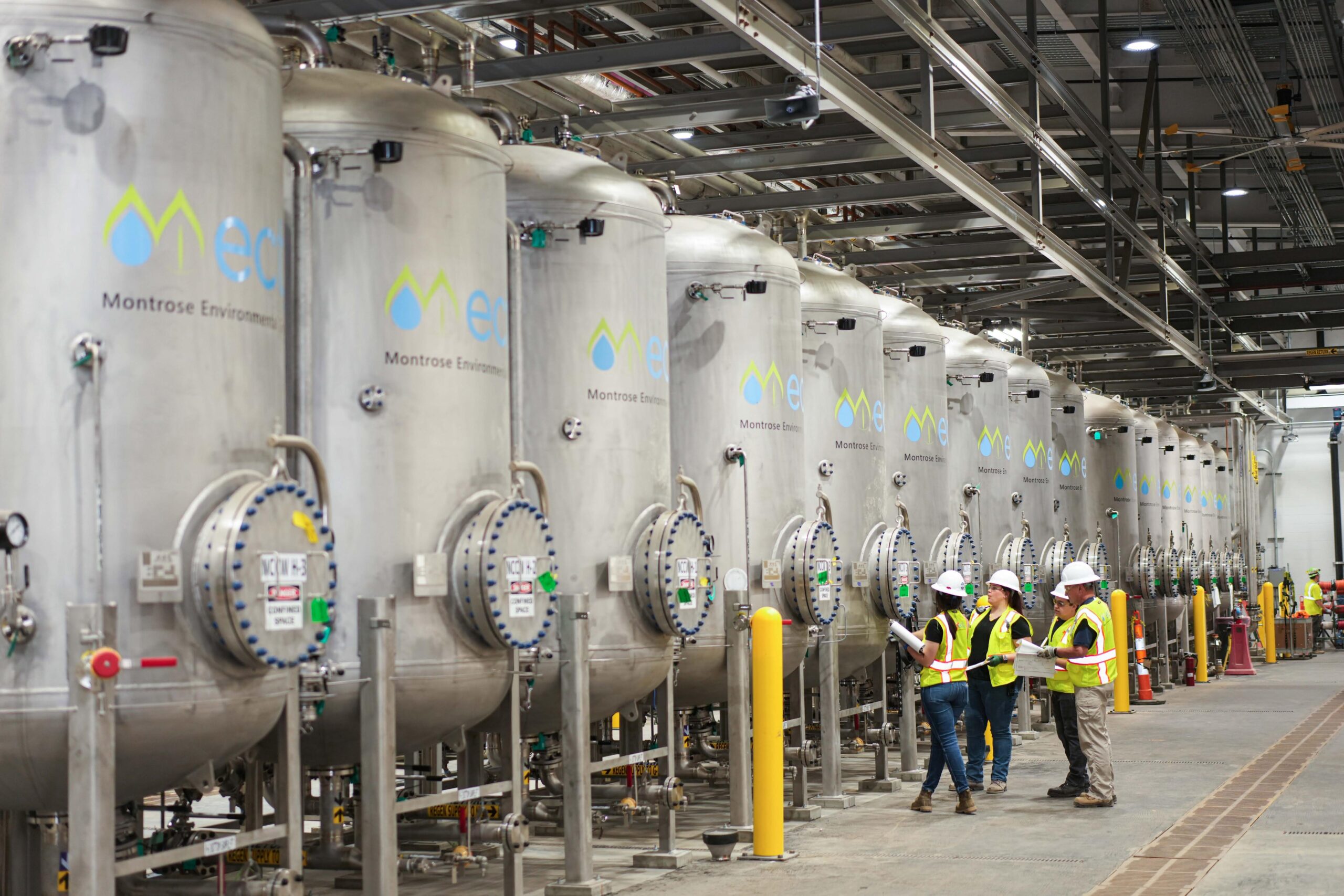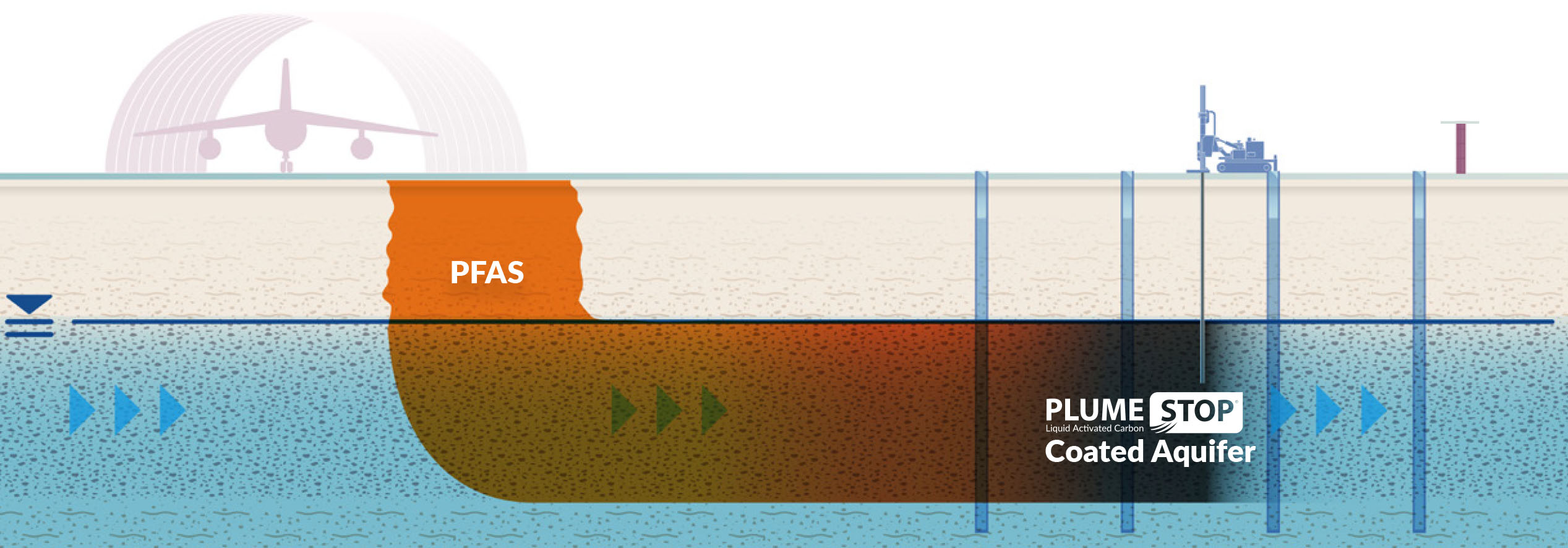Advanced PFAS Management Solutions to Protect Health
Advanced PFAS Management Solutions to Protect Health
Blog Article
Just How PFAS Therapy Makes Certain Clean and Sustainable Water
The presence of PFAS, typically known as "forever chemicals," postures substantial difficulties to water high quality and public health. Advanced treatment innovations, including turned on carbon adsorption and membrane layer filtering, have arised as efficient options to minimize these pollutants. By employing these techniques, communities can not just accomplish cleaner water but additionally foster lasting methods that secure communities. However, the effects of these treatments prolong past prompt wellness advantages; they raise essential concerns about long-lasting water management approaches that need to be addressed to make certain a resilient future. What does this mean for our strategy to water sustainability?

Understanding PFAS Contamination
PFAS, or per- and polyfluoroalkyl substances, have actually emerged as a significant ecological concern because of their prevalent prevalence and persistence in the setting. These artificial chemicals have actually been used in various commercial applications and consumer products, consisting of non-stick cookware, water-proof apparel, and food product packaging, as a result of their one-of-a-kind buildings such as water and oil resistance.
The contamination of soil and water resources by PFAS takes place mostly with industrial discharges, firefighting foam use, and leaching from land fills. pfas management. Once launched, these compounds are immune to destruction, causing their accumulation in the atmosphere. This perseverance elevates important concerns, as PFAS can travel fars away with groundwater and surface water systems, affecting drinking water materials and environments

Health Threats of PFAS
The determination of PFAS in the setting elevates significant health and wellness issues for individuals subjected to these substances. Recognized as "forever chemicals," PFAS do not damage down conveniently and can build up in human bodies with time. Research study has actually connected PFAS direct exposure to various damaging health effects, including immune system disorder, liver damage, and enhanced risk of specific cancers - pfas management. Significantly, studies have actually shown elevated cholesterol degrees and possible influence on reproductive and developing health, particularly in expecting people and infants.
The universality of PFAS in customer items, such as non-stick cooking equipment, water-repellent materials, and food packaging, additional enhances the threat of direct exposure. Consuming alcohol water polluted with PFAS is a substantial concern, as these chemicals can leach into groundwater sources. Vulnerable populations, including youngsters and those living near industrial websites, might encounter intense risks as a result of their developing systems and prospective for greater direct exposure degrees.
As awareness of these health dangers remains to expand, regulative agencies are starting to establish standards for PFAS degrees in alcohol consumption water. Public wellness efforts are important to mitigate exposure and shield neighborhoods from the long-lasting impacts of these dangerous materials.

Cutting-edge Therapy Technologies
Just how can we efficiently deal with the difficulties positioned by PFAS contamination in water sources? Innovative treatment technologies are emerging as vital remedies in the quest for clean water. These techniques focus on the elimination or destruction of per- and polyfluoroalkyl substances (PFAS), which are notorious for their determination in the setting.
One promising approach is adsorption using innovative products, such as activated carbon and ion exchange resins. These materials have shown effectiveness in capturing PFAS particles from water. One more noteworthy modern technology is membrane filtration, which makes use of nanofiltration and turn around osmosis to separate impurities at the molecular degree, therefore giving a barrier versus PFAS.
Furthermore, advanced oxidation processes (AOPs) use strong oxidants to damage down PFAS compounds into safe by-products. This approach is especially effective for treating very contaminated water resources. Bioremediation techniques, employing details microbes, are additionally being checked out to deteriorate PFAS.
As research study proceeds, hybrid systems that incorporate multiple innovations might supply enhanced performance, attending to the intricacies of PFAS contamination. The advancement and execution of these cutting-edge therapy modern technologies look these up are essential actions toward guaranteeing the safety and sustainability of our water resources.
Advantages of Efficient PFAS Treatment
Effectively dealing with PFAS contamination in water resources substantially enhances public health and wellness and ecological safety. PFAS, often described as "for life chemicals," are immune to degradation and can accumulate in the body, leading to serious health threats such as cancer cells, liver damage, and body immune system dysfunction. By applying effective treatment approaches, neighborhoods can lower direct exposure to these harmful substances, eventually improving the wellness outcomes of their populaces.
In addition, successful PFAS treatment contributes to the conservation of neighborhood ecological communities. Infected water can detrimentally influence marine life and interfere with the fragile equilibrium of neighborhood habitats. By ensuring tidy water, therapy processes protect biodiversity and maintain ecological honesty.
Additionally, efficient PFAS removal can promote public confidence in water quality. When areas are guaranteed that their alcohol consumption water is cost-free from damaging pollutants, it advertises a sense of safety and health. This depend on is necessary for neighborhood engagement and assistance for ongoing water management efforts.
Future of Water Sustainability
In the middle of growing problems about water top quality and shortage, the future of water sustainability depends upon ingenious methods and joint efforts. As communities face the looming dangers of pollutants like PFAS, the growth of advanced treatment innovations is important. These innovations not just focus on the elimination of harmful compounds yet additionally promote the reuse and recycling of water, thus lowering overall need.
Moreover, efficient water administration plays a crucial role in making sure sustainable methods. Policymakers need to integrate clinical study with regulative frameworks to develop clear standards for water usage and treatment. Stakeholder engagement, including neighborhood communities and sectors, cultivates a feeling of common duty and urges lasting methods throughout various fields.
Financial investment in framework is likewise important; upgrading aging systems to include contemporary filtration and filtration techniques can considerably improve water top quality. In addition, accepting environment-friendly technologies, such as natural filtration systems, can supply eco-friendly solutions.
Inevitably, the future of water sustainability hinges on an all natural technique that combines modern technology, policy, and community participation. By focusing on these elements, we can safeguard our water resources for generations to come, making sure tidy and lasting water for all.
Verdict
To conclude, the reliable treatment of look at this web-site PFAS is important for making sure clean and sustainable water. By using sophisticated innovations such as triggered carbon adsorption, membrane layer purification, and progressed oxidation processes, areas can dramatically decrease the wellness risks related to these contaminants. The assimilation of these therapy approaches sustains link ecological community security and boosts biodiversity. Eventually, durable PFAS therapy methods contribute to long-term durability in water administration, promoting public rely on water top quality and advertising sustainable methods.
Report this page